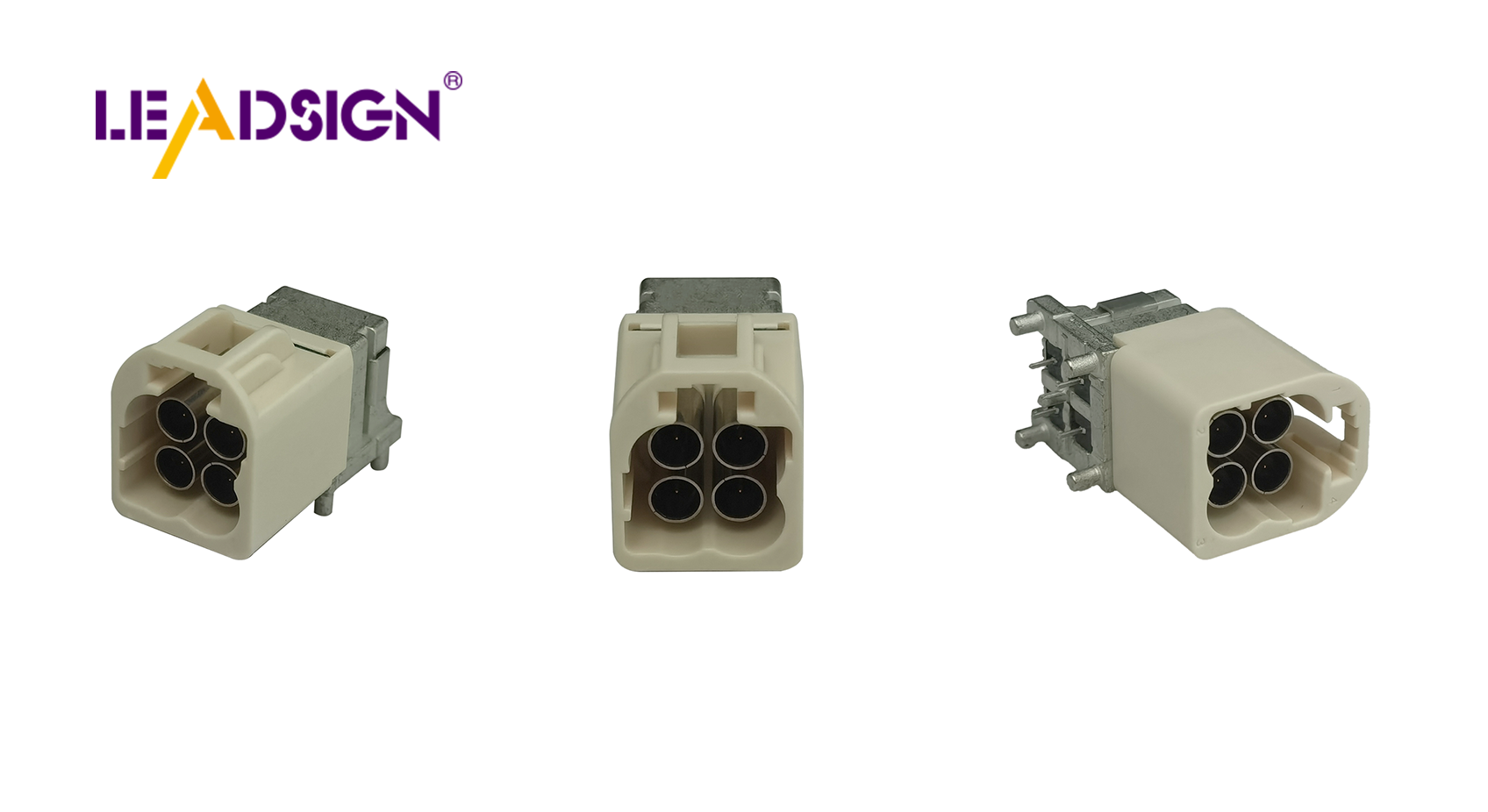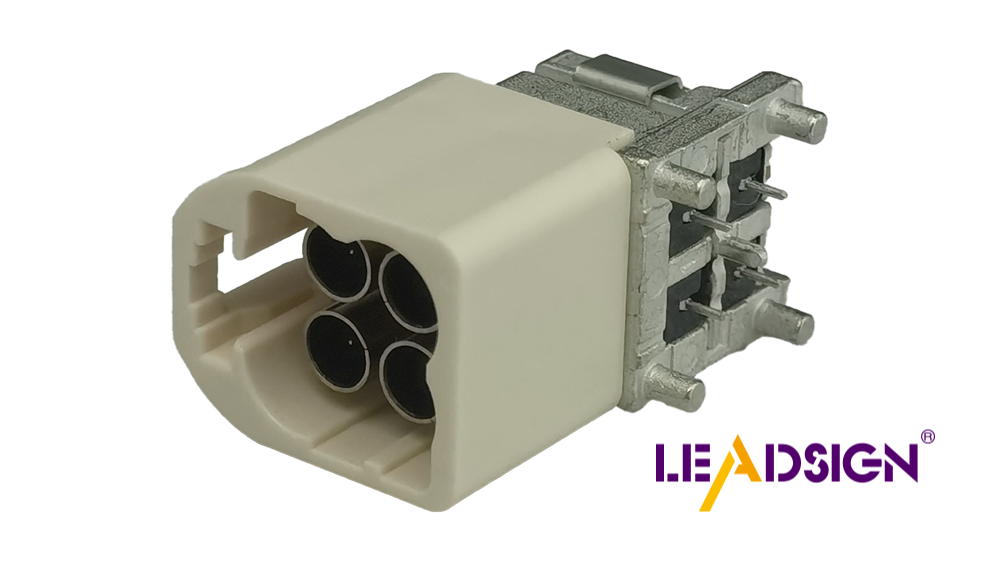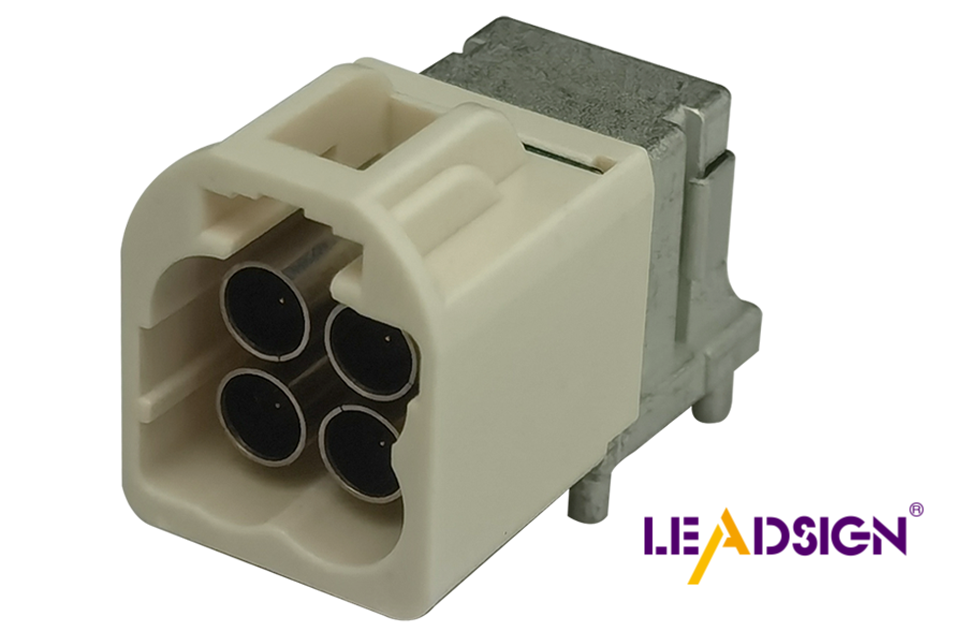What Are the Different Types of Automotive Wiring Connector Types

Automotive electrical connectors types are key parts of your car's electrical system. They help each part talk to each other, keeping your car working well. Without good connectors, your car could have many electrical problems. Different types of car connectors can fail at different rates. This depends on things like heat and power use. Picking the right connector is important for best performance. Knowing their importance helps you see how these small parts keep your car running smoothly.
Types of Automotive Electrical Connectors

Knowing about different automotive electrical connectors is important. They help your car's parts work together well. These connectors move power and signals between things like the engine, radio, sensors, and lights. Let's look at some common connector types used in cars.
Blade Connectors
Blade connectors are often found in car wiring systems. They make sure power and signals connect safely.
Characteristics of Blade Connectors
Design: They have a flat metal piece that fits into a slot.
Durability: Made to handle heat and shaking, perfect for cars.
Ease of Use: Easy to plug in and out for fixing or checking.
Common Uses in Vehicles
Lighting Systems: Used in headlights and taillights.
Infotainment Systems: Connects parts of the car's entertainment system.
Engine Control Units: Sends signals to the engine control unit.
Pin Connectors
Pin connectors are also important for cars. They work well with high-power needs like lights and starters.
Characteristics of Pin Connectors
Design: Has a round pin that goes into a socket.
High Current Capacity: Handles lots of electricity, great for strong power needs.
Reliability: Keeps connections steady to avoid problems.
Applications in Automotive Systems
Headlights: Used in headlights for good power flow.
Starter Motors: Needed for starter motors to work right.
Battery Connections: Often used on battery ends for secure links.
Butt Connectors
Butt connectors join two wires together safely in cars. They keep circuits connected well.
Features of Butt Connectors
Design: Shaped like a tube where wires go from each end.
Insulation: Comes with a cover to keep out water and dirt.
Ease of Installation: Quick to attach by squeezing onto wires.
Typical Use Cases
Wire Extensions: Good for making wires longer in cars.
Repair Work: Used when fixing broken wires.
Signal Transmission: Helps keep signals moving between car parts.
By knowing these connector types, you can keep your car's electric system working well. Each type has its own job, helping your car run smoothly.
Shapes of Pin Connectors

Knowing pin connector shapes helps pick the right automotive electrical connectors for your car. Each shape has special uses and benefits, making sure your car's electric system works well.
Round Pin Connectors
Round pins are important in cars. They handle lots of electricity, perfect for some car parts.
Advantages of Round Pins
High Current Capacity: Round pins work great with high power. They keep a steady link for things like headlights and starters.
Durability: These pins last long even in tough conditions, keeping your car running well.
Versatility: They come in different sizes to fit various automotive electrical connectors.
Specific Applications
Headlights: Round pins give strong power to headlights, helping you see better and stay safe.
Starter Motors: They supply needed power for starters, so your car starts easily.
Battery Connections: Round pins make secure links at battery ends, keeping power steady.
Flat Pin Connectors
Flat pins have unique benefits in cars. Their shape fits many uses, giving good connections.
Benefits of Flat Pins
Compact Design: Flat pins save space in the wiring system.
Ease of Maintenance: They're easy to fix or replace quickly.
Robust Connection: Flat plugs lock tightly, stopping them from coming loose.
Common Uses
Trailer Plugs: Often used in trailers for tight and small connections.
Infotainment Systems: They link parts inside the entertainment system smoothly.
Lighting Systems: Used in lights inside and outside the car for solid connections.
By learning about pin connector shapes and uses, you can choose the best automotive electrical connectors types for your vehicle. This knowledge keeps your car's electric system working well.
How Car Systems Affect Connector Choice
Picking the right automotive electrical connectors types is very important. Different car parts need different connectors to work well.
Electrical Systems
Car electrical systems need strong connectors. You must think about a few things when choosing them.
What Electrical Connectors Need
Durability: Connectors should handle bumps and shakes. This keeps them working for a long time.
Temperature Resistance: They must survive hot and cold without breaking.
Contaminant Protection: Sealed ones stop water and dirt, keeping connections safe.
Mechanical and Environmental Factors: Car connectors must handle bumps, heat, cold, and dirt.
Good Connector Examples
Crimp Connectors: Easy to put in and hold tight, great for electric parts.
Sealed Connectors: Keep out water and dirt, good for tough places.
Deutsch DT Compatible Connectors: Strong design fights shaking and weather well.
Engine Systems
Engines need connectors that manage lots of power. The right ones help engines run better.
What Engine Connectors Need
High Current Capacity: Must carry lots of power for engine parts like starters.
Robustness: Stay strong with engine shakes.
Compact Design: Fit in small spaces but still work well.
Advancements in Automotive Technology: Car connectors are key for fast data, power flow, and complex electronics.
Suggested Connector Types
Pin Connectors: High power capacity fits engine needs well.
Butt Connectors: Join wires safely, keeping circuits steady in engines.
Mini-Splash Proof Connectors: Work well where there's water or dust, helping engines stay smooth.
By knowing what your car's systems need, you can pick the best connector types. This helps keep your car running reliably.
When picking automotive electrical connectors types, follow these easy tips:
Know Your Needs: Find out what your car's systems need. Different connectors do different jobs.
Check Fit: Make sure the connectors work with your car’s electric parts and conditions.
Choose Quality: Pick strong connectors that last long and work well.
Ask Experts: If unsure, talk to professionals. They can help you choose the right connectors for safety and good performance.
By using these tips, you keep your car's electric system strong and working well.
See Also
Exploring the Fundamentals of HSD Connectors in Automotive
The Significance of Fakra Connectors in Today's Vehicles
Benefits of HFM Connectors in Automotive Applications

